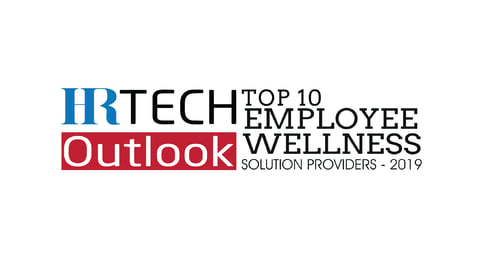The Gap Between Labor Rights and Employee Well-Being

Labor rights laws vary globally and affect employee well-being differently. They aim to establish baseline standards for employee treatment, focusing on work hours, occupational safety, and fair wages. While labor rights laws aim to protect the employee, they provide a minimum standard, often leaving the employee to fill in the gaps for their needs.
When employee wellness is increasingly recognized as critical to workplace success, the relationship between labor rights and well-being is becoming more critical than ever. Awareness is growing that labor laws must include broader aspects of employee health. This article examines the intersection of labor rights laws and employee well-being, examining current legal frameworks, their limitations, and potential future developments.
Where Labor Rights Laws Meet Well-Being
Labor rights laws, whether at the federal, state, or local level, establish the baseline standards for working conditions, maximum work hours, and occupational safety. These laws serve as the foundation for ensuring that workers are treated fairly and with respect in the workplace. However, the extent to which these laws address well-being varies significantly by jurisdiction, reflecting the different cultural, economic, and political contexts where they are enacted.
For example, the United Kingdom has taken notable steps in incorporating well-being considerations into its employment laws. Recent legislation includes provisions for data protection — which impacts employee privacy — and mental health support, showing a growing recognition of the importance of psychological well-being in the workplace. These developments highlight a trend toward integrating well-being in the workplace.
Despite these positive changes, the integration of well-being into labor rights laws is far from universal. Many jurisdictions still lag in recognizing the full scope of employee well-being, focusing instead on traditional aspects such as wages and safety.
The Laws' Limitations: The Situation in the U.S. and Statistics
In the United States, labor rights laws have historically focused on basic worker protection, such as minimum wage requirements and safety regulations. However, these laws often fall short when it comes to addressing the comprehensive well-being of employees.
The U.S. labor law landscape is fragmented, with a patchwork of federal, state, and local regulations that create significant disparities in worker protections across the country. A striking example of this disparity is highlighted in the Best and Worst States to Work in America 2022 study, which compared the 50 states, Puerto Rico, and the District of Columbia in three aspects: wage policies, worker protections, and rights to organize. 
The study found that states like Washington, Oregon, California, and Washington, D.C. offered some of the best working conditions with strong labor protections that contributed to better employee well-being. Conversely, states such as Mississippi, Georgia, and North Carolina were ranked among the worst, with minimal (or absent altogether) labor protections that negatively impact workers’ quality of life.
These disparities illustrate the profound effects that strong or weak labor protections can have on employee well-being. In states with robust labor laws, employees are more likely to enjoy better working conditions, fair wages, and access to health benefits, all of which contribute to lower stress levels and improved overall health. On the other hand, weak labor protections often lead to inadequate compensation, unsafe working conditions, and limited access to essential benefits, resulting in increased stress, financial strain, and poorer health outcomes.
The Relationship Between Fair Wages and Stress Levels
Fair compensation is one of the most significant factors in worker well-being. Wages are not only a reflection of the value of work but also a critical determinant of an employee’s ability to maintain a stable and healthy lifestyle.
Fair Wages Result in Reduced Stress Levels and Overall Better Health
Research consistently shows that fair wages are linked to reduced stress levels and overall better health. Employees who are compensated fairly are more likely to experience financial security, which in turn reduces anxiety and allows them to focus more on their work and personal well-being. Contrarily, inadequate compensation can lead to financial strain, impacting mental and physical health.
Stagnant Minimum Wages Compound the Problem
In many parts of the United States, wage laws have not kept pace with the rising cost of living. The federal minimum wage has remained stagnant for years, leading to a situation where many workers struggle to make ends meet despite working full time. This financial strain can have severe consequences for both mental and physical health, highlighting the urgent need for updated wage laws. The situation highlights the critical need for updated wage laws that reflect the cost of living and ensure all workers can achieve financial stability.
Inadequate Wages Impact the Workplace
The impact of inadequate wages is not limited to individual employees; it also affects the broader economy and society. Underpaid workers are more likely to experience health problems, which can lead to increased healthcare costs and lost productivity. Moreover, the stress associated with financial insecurity can strain personal relationships and contribute to a negative work environment, further exacerbating the challenges faced by both employees and employers.
What's Next for Laws That Enhance Worker Well-Being?
As awareness of the need for comprehensive labor rights grows, momentum increases toward the development of laws that support workers' well-being. Future laws may go beyond basic protections to ensure fair compensation and safer workplaces that contribute to employees’ health and happiness.
While one area of focus is likely to be fair compensation, there may be a push for stronger legal frameworks that guarantee safer workplaces, with a particular emphasis on mental health resources. Access to mental health support, including counseling and stress management programs, is becoming increasingly recognized as a vital component of employee well-being.
Furthermore, there is likely to be a growing focus on protecting the rights of gig economy workers, who often lack the basic protections afforded to traditional employees. This has been a growing cause of concern among workers worldwide. A 2021 study by the Pew Research Center found that 46% of gig workers are concerned about the lack of benefits and 34% mention pay as an issue.
Another potential development is the introduction of regulations that support work-life balance. This could include policies that promote flexible working hours, parental leave, and limits on overtime, all of which help employees manage their personal and professional responsibilities more effectively.
Keep Up With Labor Laws and Well-Being With CoreHealth
Implementing a corporate wellness platform like CoreHealth helps companies align with evolving labor laws and enhance employee well-being. CoreHealth offers a comprehensive suite of tools for wellness program management and integrates seamlessly with HR platforms, updating automatically on regulations related to employee health and safety. It provides features such as health assessments, stress management resources, and data analytics. These tools not only ensure adherence to legal requirements but also foster a healthier, more engaged workforce. By integrating wellness initiatives with legal compliance, companies can address employee well-being holistically, promoting a positive work environment and reducing legal risks.
Enhance your employees' well-being with CoreHealth. Request a demo to learn more!
If you found this article interesting, please share it on social media.
Want to learn more about employee well-being? Read more here:
- Top Benefits Brokers and Corporate Wellness Programs in Tennessee
- The State of Workplace Wellness Around the Globe
About The Author
CoreHealth Marketing
CoreHealth Technologies Inc. is a total well-being technology company trusted by global providers to power their health and wellness programs. Our wellness portals help maximize health, engagement, and productivity for 3+ million employees worldwide.




